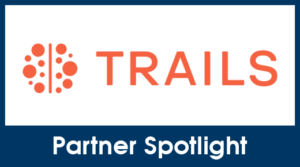 It was Christina’s 11th year teaching. In addition to the expected needs of the fifth grade population, she noticed that, despite being several years out from the pandemic, her students had a heightened degree of anxiety and social and emotional struggles compared to the beginning of her career.
It was Christina’s 11th year teaching. In addition to the expected needs of the fifth grade population, she noticed that, despite being several years out from the pandemic, her students had a heightened degree of anxiety and social and emotional struggles compared to the beginning of her career.
She and her co-teacher had volunteered to try the social and emotional learning (SEL) program from TRAILS, a nonprofit that equips school staff with training and resources to provide evidence-based and culturally responsible mental health programming to students.
“We do have one student this year who’s very anxious,” she said. In addition to the weekly lesson delivery, she’d started posting SEL activities and reminders in the hallway outside her room, including an outline of a breathing technique that involves hand tracing.
At the beginning of the year, this student would take breaks to walk in the hallway when agitated, “and he would just kind of stand there and pace.” But after they’d done several lessons and mindful checkouts that involved breathing and emotional regulation, something changed. She saw him observing the breathing techniques posted in the hallway, tracing along the hand image, and working on his own breathing, “and I could see him from my window and … [would] just do like a little silent teacher cheer … So that’s kind of a win for me and him.
“At TRAILS, we envision a future in which all children and teens have equitable access to effective mental health services. We equip school staff like Christina with the training, resources, and implementation support they need to provide evidence-based and culturally responsible programming to their K–12 students.
TRAILS offers three tiers of programming that span from universal education and awareness to crisis response. Programming is skills-based, providing students with tools to navigate social and emotional challenges that they may experience during their lifetime. With MTSS school-based mental health support, we’re able to meet students where they are during a time when rates of adolescent depression and anxiety have soared.
Christina adds that, “all students can put these tools in their toolbox and use them on a daily basis. In yesterday’s lesson, we talked about stress, and I said, ‘you guys may not know it, but you do feel these things that build up and you need these tools to help you cope.’ I think it’s just a great way that all grade levels can give students these tools.”
Click here to learn more about TRAILS programming.
